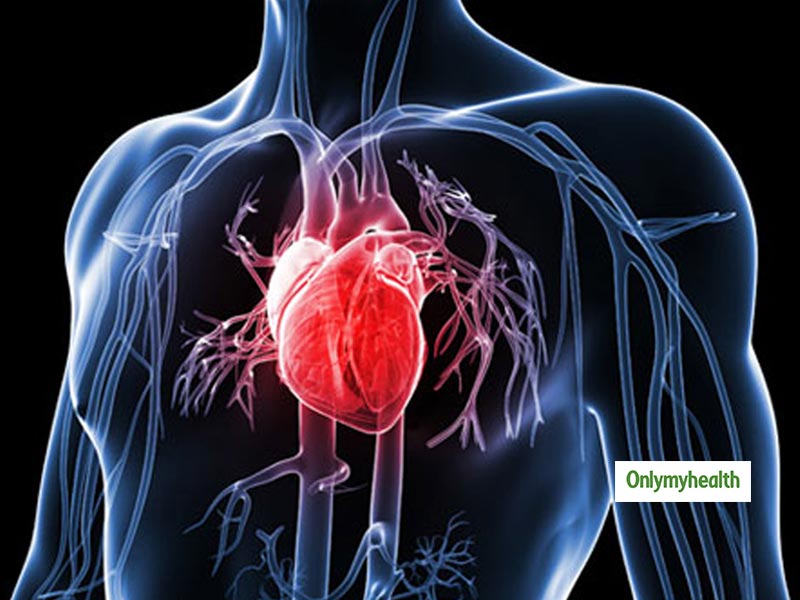
There are has been a rise in the incidence of coronary artery disease (CAD) in young Indians, indicate recent statistics. Over 50% of cardiovascular disease mortality is seen to occur in individuals below 50 years of age. Thanks to a sedentary lifestyle and unhealthy habits, heart diseases have affected young Indians 10 years ahead of their Western counterparts. About 7% of patients between 25 and 40 years of age have CAD.
Table of Content:-
CAD is a condition that impacts the flow of blood to the heart. If the heart doesn’t get the adequate flow of oxygen-rich blood, then its condition starts deteriorating, putting a person at enhanced risk of a heart attack. The cardiac ailments make a significant dent on the quality of life, especially in those who are predisposed to the condition. Apart from timely diagnosis and treatment, precautions and lifestyle changes at an early age can help save lives.

Also Read: Clean Your Arteries With These Superfoods
Speaking about this, Dr Ashwani Mehta, Senior Cardiologist, Sir Ganga Ram Hospital, New Delhi, said, “Lifestyle choices are making youngsters increasingly prone to conditions such as coronary artery disease (CAD). Some of these include obesity, poor diet, physical inactivity, smoking, and excessive alcohol use. An unhealthy lifestyle can cause a build-up of plaque in the arteries which supply blood to the heart and cause them to become hardened and narrow. This condition is called atherosclerosis. With time, the heart muscle may be unable to get the blood or oxygen it needs leading to chest pain (angina) or a heart attack. The fact that heart diseases may not present with any obvious symptoms can cause difficulty in timely diagnosis and management.”
Cholesterol levels of 240 mg/dL (6.21 mmol/L) or above are termed as hyperlipidemia.
Adding further, Dr Mehta, said, “While treatment and surgery are the last resort for someone diagnosed with CAD, it is imperative to make lifestyle changes at an early age to prevent these problems from occurring. Some such changes include eating a ‘heart-healthy’ diet, regular exercise, avoiding or quitting tobacco use, and maintaining a healthy weight. Those with a family history of heart disease should be more careful.”
Also Read: How to Fight the Symptoms of Heart Failure
Treatment

Patients with atherosclerosis can require a treatment called angioplasty. In this procedure, a catheter is used to clear the blocked artery. This is done with the help of the balloon tip of the catheter. Another option is coronary artery bypass grafting (CABG); a process in which a healthy artery from the body is connected to the blocked one. The grafted artery or vein bypasses the blocked portion of the coronary artery. Drug-eluting coronary stents are deployed in coronary arteries after balloon angioplasty. Over the long term, these stents help to maintain the patency of coronary arteries.
Some tips for a healthy heart
- Consume a low-sodium diet with no more than 6 gm of sodium chloride in a day.
- Minimize the consumption of trans fats found in hydrogenated oils or vanaspati ghee. They reduce the good HDL cholesterol and increase the bad LDL cholesterol. Avoid eating out to restrict the intake of trans fats in excess.
- Avoid refined carbohydrates such as bread, pasta or even white sugar. Replace them with options like whole grain flour, healthy green cereals and oatmeal.
- Exercise regularly – at least for about 30 minutes a day—as it has numerous benefits for the heart.
- Quit smoking and consume alcohol in moderation.
- All individuals should undergo basic lipid profile to determine their lipid levels and plan therapy with lipid-lowering drugs if required as early as possible.
About The Author: Dr Ashwani Mehta, Senior Cardiologist, Sir Ganga Ram Hospital, New Delhi
Read more articles on Heart Health
How we keep this article up to date:
We work with experts and keep a close eye on the latest in health and wellness. Whenever there is a new research or helpful information, we update our articles with accurate and useful advice.
Current Version